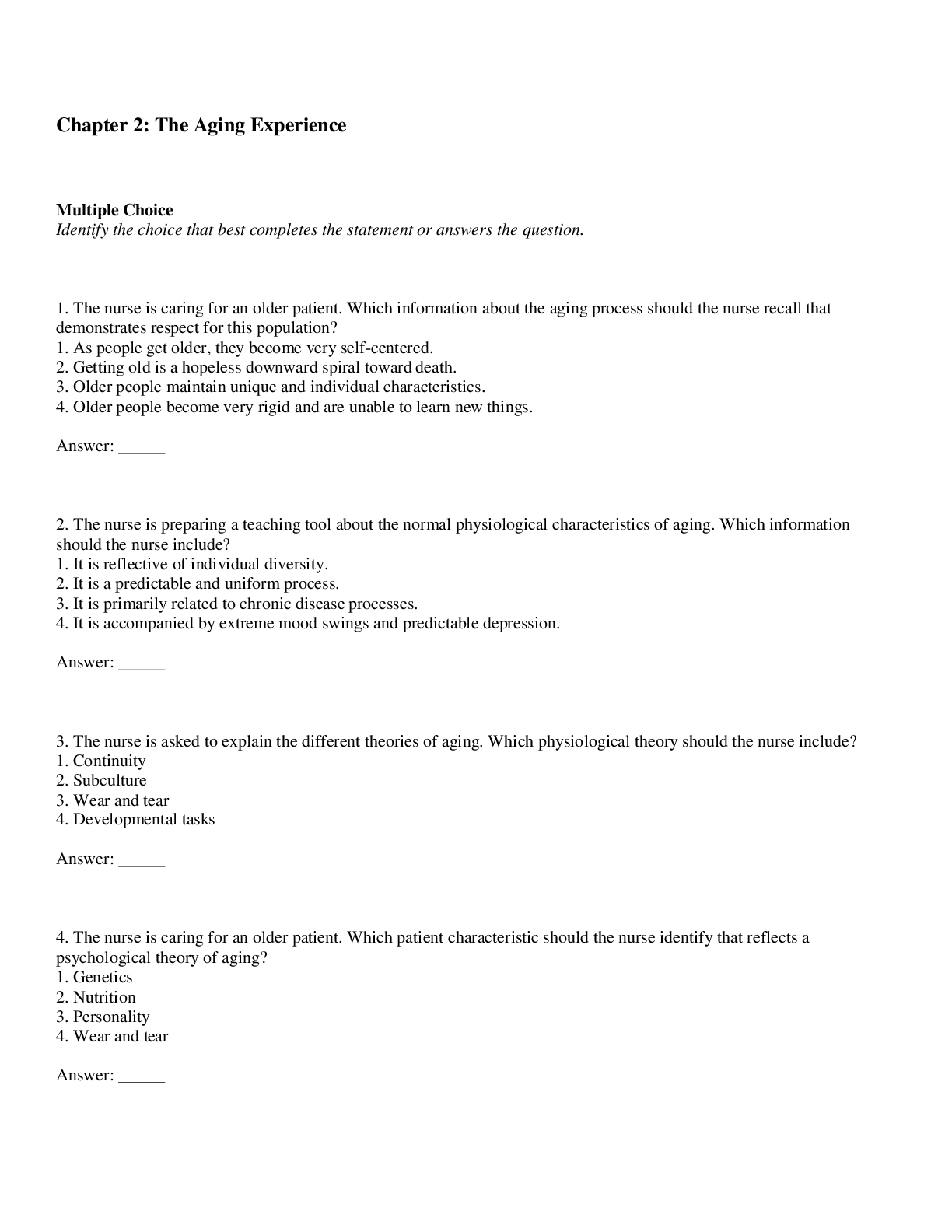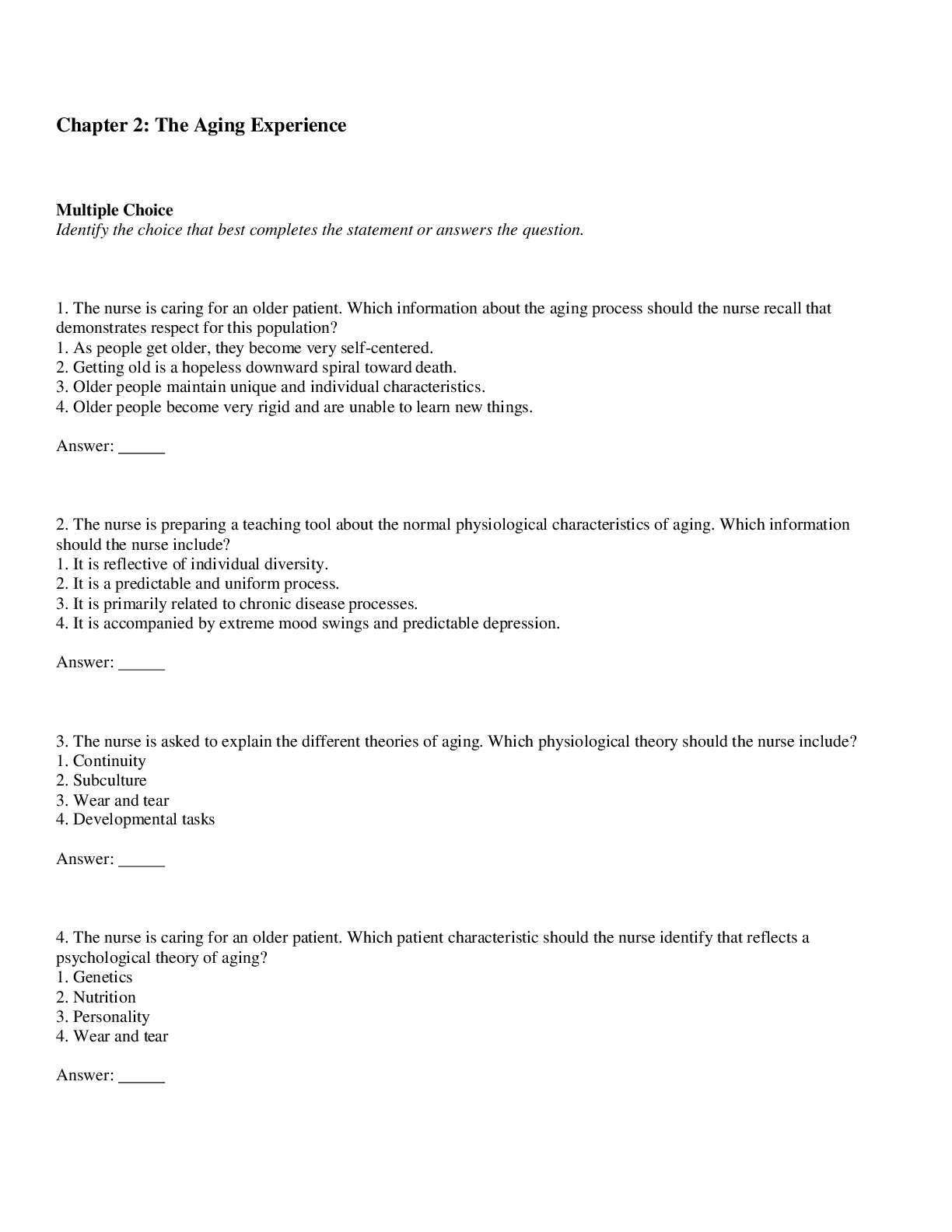Chapter 2: The Aging Experience : CARING_FOR_OLDER_ADULTS_HOLISTICALLY_7TH_EDITION_BY_DAHLKEMPER_
Course
Project Management
Subject
Chemistry
Category
Questions and Answers
Pages
11
Uploaded By
ATIPROS
Preview 4 out of 11 Pages


Download all 11 pages for $ 9.00
Reviews (0)
$9.00
